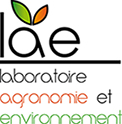Plants must protect themselves from multiple attacks, including those from pathogenic microorganisms. Plants have developed protective mechanisms against these pathogens and one of them uses specialized metabolites with biocidal activities. Plants can also make "common cause" with beneficial microorganisms, some of which are present in plant tissue. Plant-endophytic microorganism interactions fall into this category. The endophytic microbiota then participates in the "war effort" against pathogens by improving the tolerance and / or resistance of the plant.
The endophyte microbiota have a variety of modes of action. It can synthesize antimicrobial molecules allowing plants to protect themselves against pathogens. It can also produce substrates which will be taken care of by the cellular machinery of the plant or, conversely, take care of products synthesized by plants to functionalize them in a specific way. Finally, it can modulate the growth and nutrition of the plant and thus allow the plant to compensate for the damage caused by pathogens.
The M2 and AGISEM teams are contributing to the study of several plant models of the beneficial microbiota of the plant via the taxonomic and functional characterization of the bacterial communities associated with plants (rhizospheric and endophyte communities).
Lead researchers:
Link to:


